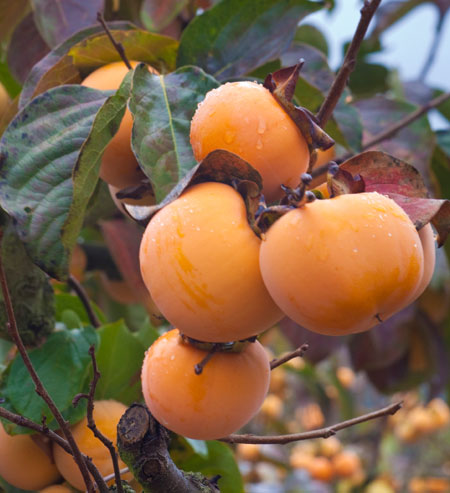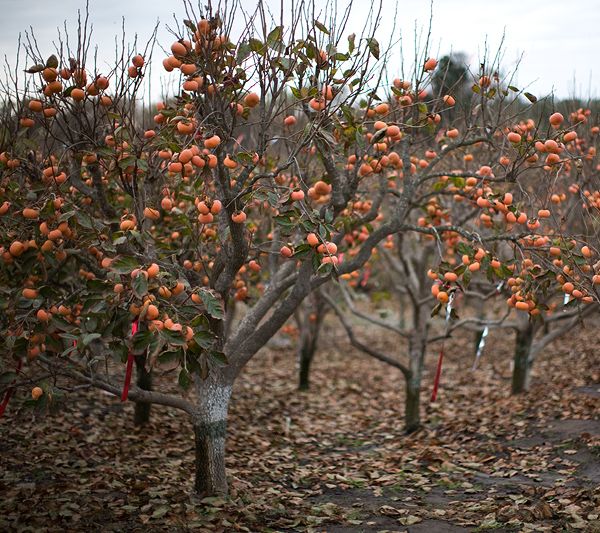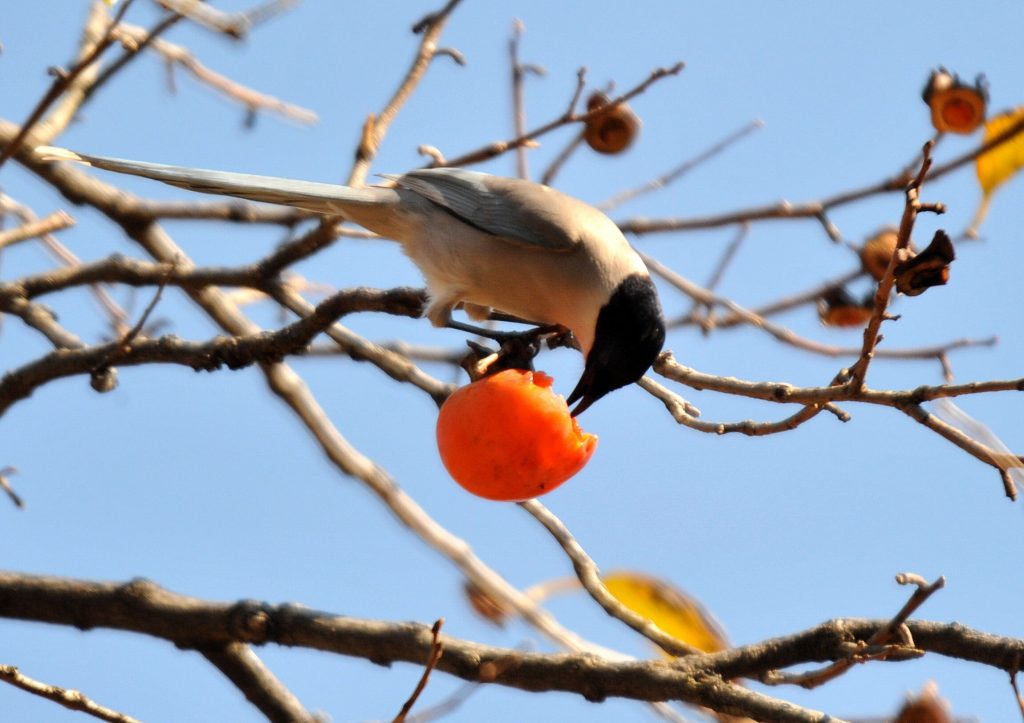This post is published on http://loveneverending.com/8936-2/.
In the rural areas of Israel, every time the farmers harvest the crop, they will leave a portion of the four corners near the edge of the roadway untouched. Those fruits of the four corners are available to anyone who needs them.
They believe it is God who gave the once-troubled Jewish people a happy life today. Leaving the crops at the four corners of their fields, it not only shows their gratitude toward God but also gave to those who pass by and have no food to eat. Crops are grown by themselves, leaving a little to others to enjoy, they believe that sharing is a kind of gratitude, and it is a virtue too.
Coincidentally, there are many persimmon gardens along the country roads in the northern side of South Korea. In the golden autumn season, the busy figures of farmers picking persimmons can be seen everywhere, but after the harvest, some ripe persimmons will not be picked off. These persimmons left in the trees have become a unique landscape. When some tourists pass by here, they will say that these persimmons are big and red, and it is a pity not to pick them up.

The image is from Fast Growing Trees
But the local fruit growers believe that no matter how beautiful and attractive the persimmons grow, they won’t be picked off because they are the food left for the magpie. What makes people here have such a habit?
It turns out that this is a habitat for magpies: every winter, magpies nest on the fruit trees for the winter. One winter, the weather was unusually cold, and there was a lot of snow. Hundreds of magpies who could not find food were frozen to death overnight. The following spring, the persimmon tree re-emerged and sprouted, flowered and bore fruits. But just then an unknown caterpillar suddenly flooded into disaster. That year the persimmon was almost out of production.
Since then, when the farmers harvest persimmons every autumn, people will leave some persimmons as food for the winter. Persimmons left in the trees attracted many magpies to spend the winter here. Magpies seem to be grateful, and they don’t fly away in the spring. They are busy catching the bugs on the trees all day, thus ensuring a bountiful harvest of persimmons that year.

The image is from Pinterest.
In the harvest season, don’t forget to leave some persimmons in the trees. Because, leaving room for others, often gives ourselves the chance and hope. Everything in nature is interdependent, and we are bound together for good or ill.

An azure-winged magpie is eating a ripe persimmon …
Giving is a kind of joy. For giving is not a total loss, but a noble gain. Giving will bring us happiness because it can make your heart beautiful when you are willing to give to the others, and it makes people happy. It is like leaving a few persimmons in the tree! It is the most beautiful scenery in the world.
Chinese version-
在以色列農村,每當莊稼成熟收割的時候,靠近路邊的莊稼地四個角都要留出一部分不收割。四角的莊稼,只要需要,任何人都可以享用。
他們認為,是神給了曾經多災多難的猶太民族今天的幸福生活。他們為了感恩,就用留下田地四角的莊稼這種方式報答今天的擁有。既報答了神,又為那些路過此地又沒有飯吃的貧困的路人給予方便。莊稼是自己種的,留一點給別人收割,他們認為,分享是一種感恩,分享是一種美德。
無獨有偶,韓國北部的鄉村公路邊有很多柿子園。金秋時節,這裡隨處可見農民採摘柿子的忙碌身影,但是,採摘結束後,有些熟透的柿子也不會被摘下來。這些留在樹上的柿子,成為一道特有的風景,一些遊人經過這裡時,都會說,這些柿子又大又紅,不摘豈不可惜。
但是當地的果農則說,不管柿子長得多麼誘人,也不會摘下來,因為這是留給喜鵲的食物。是什麼使得這裡的人留有這樣一種習慣?
原來,這裡是喜鵲的棲息地,每到冬天,喜鵲都在果樹上築巢過冬。有一年冬天,天特別冷,下了很大的雪,幾百隻找不到食物的喜鵲一夜之間都被凍死了。第二年春天,柿子樹重新吐綠發芽,開花結果了。但就在這時,一種不知名的毛蟲突然泛濫成災。那年柿子幾乎絕產。
從那以後,每年秋天收獲柿子時,人們都會留下一些柿子,作為喜鵲過冬的食物。留在樹上的柿子吸引了許多喜鵲到這裡度過冬天。喜鵲仿佛也會感恩,春天也不飛走,整天忙著捕捉樹上的蟲子,從而保證了這一年柿子的豐收。
在收獲的季節裡,別忘了留一些柿子在樹上。因為,給別人留有餘地,往往就是給自己留下了生機與希望。自然界裡的一切,都是相互依存的,一榮俱榮,一損俱損。
給予,是一種快樂。因為給予並不是完全失去,而是一種高尚的收獲。給予,是一種幸福,因為給予能使你的心靈美好。留幾枚柿子在樹上吧!那是一道人間最美的風景。
(網路文章)




 字體:
字體:






